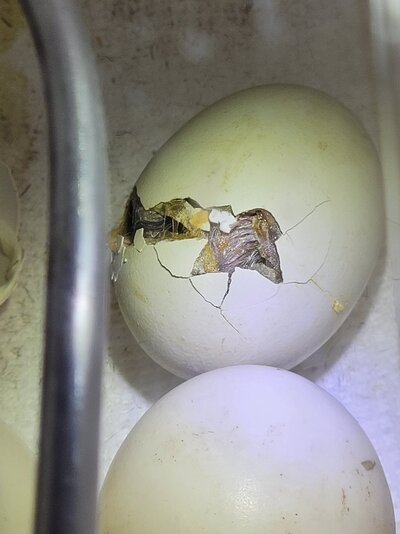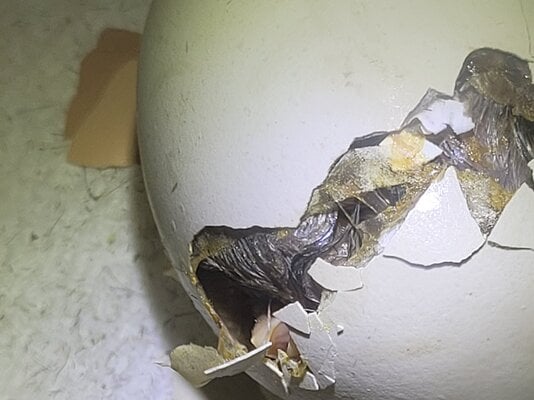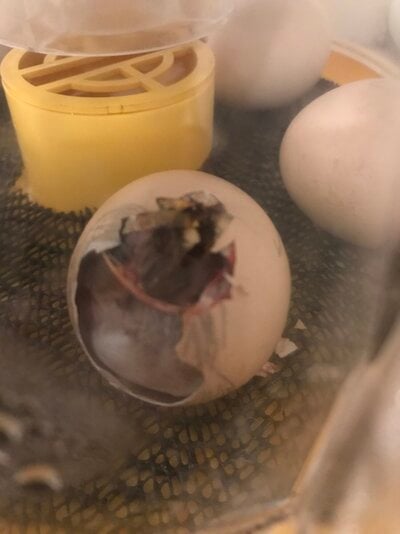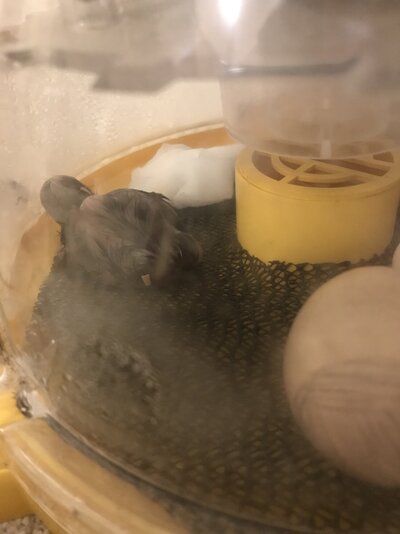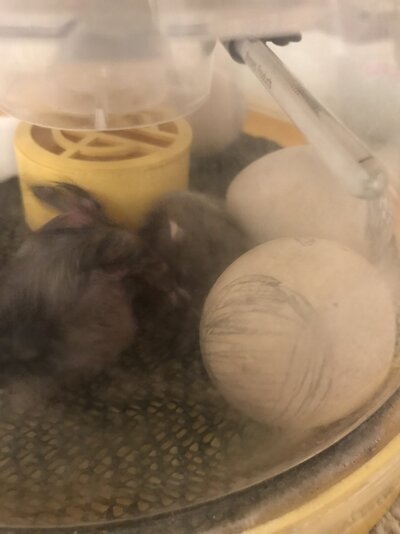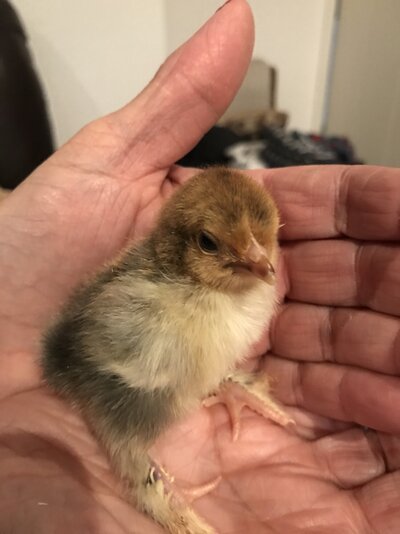MagikalMisfitsMomma
In the Brooder
- May 14, 2021
- 14
- 37
- 46
She's currently my my only egger chick, and my only seemingly troubled hatch (out of a hatch of 12/18 if she hatches & survives). The incubator temp is 99% and humidity is 60%. She pipped about 30-31 hours ago, but we're going on 24+ with the zip line and half crack away. The exposed membrane seems to be getting a brownish papery texture, and even her wing(?) seems kind of sticky looking. Her activity level has also drastically dropped (without anymore bursts of kicking or pushing). I have a small cup of water (covered with cheesecloth) to try and maintain a higher humidity. I nervous as heck to step in too soon, because I know the consequences can be fatal to the chick, but something just looks and feels wrong here. Any advice would be SO appreciated! I'm a long time chicken mama, but a first time incubator mama! 



